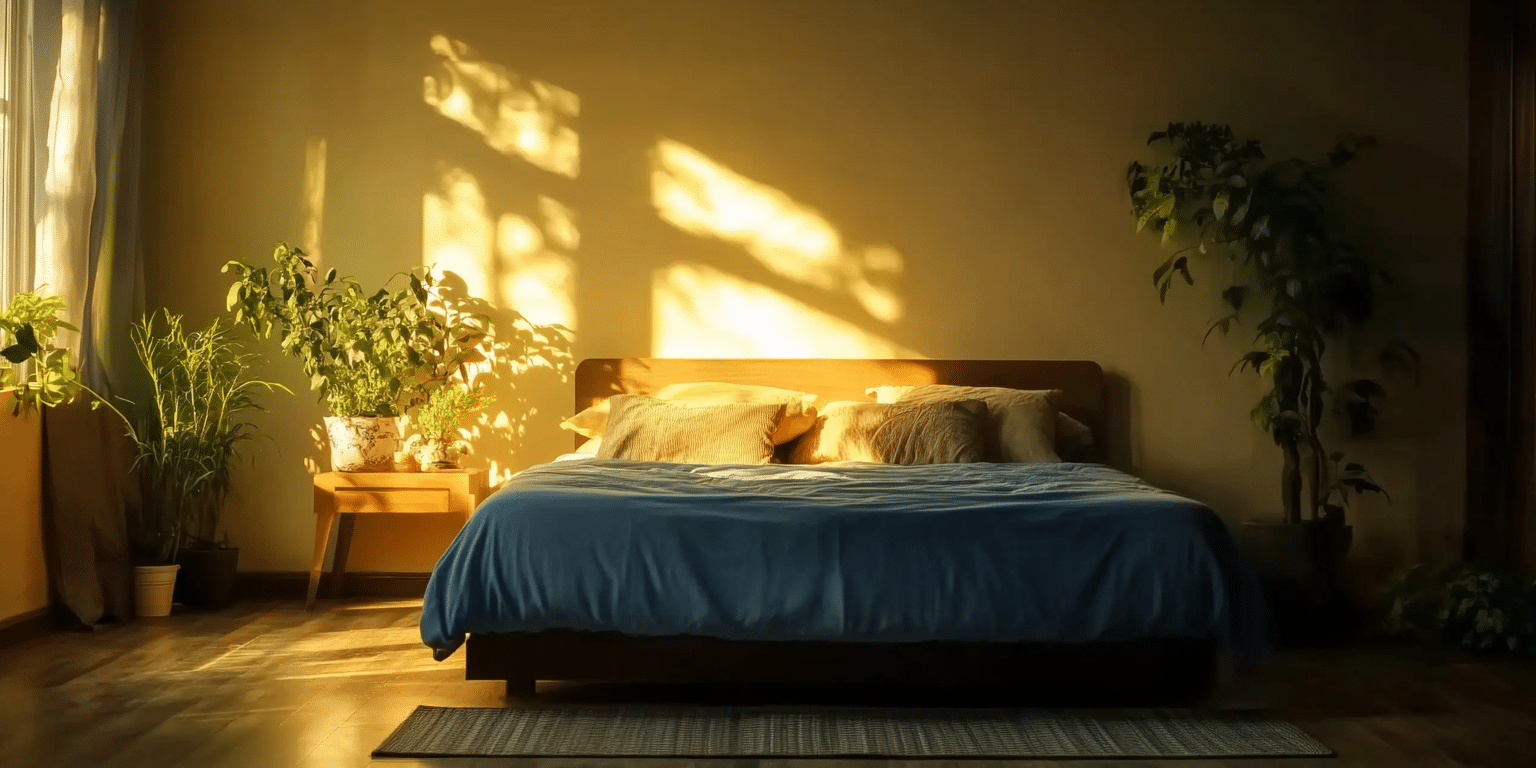The Psychology of Sleep Divorce: Why Some Couples Choose Separate Beds
If you’ve ever stared daggers at your beloved because their midnight chainsaw‑level snoring cost you a good night’s sleep, you’re not alone. Sleep issues can severely affect romantic relationships, leading many couples to consider sleep divorcing. An American Academy of Sleep Medicine survey found that roughly one‑third of U.S. adults sleep separately occasionally or consistently to protect their shut‑eye —the media has dubbed this a sleep divorce.
While the term sounds dramatic (no attorneys needed, we promise), it captures a real shift in how couples balance intimacy with sleep health. In this article we’ll cut through the stigma, dig into the brain science, and explore the relational psychology behind choosing different beds—or even different rooms—so you can decide whether a sleep divorce is right for your relationship.
The Science of Night‑Time Disruption
Sleep Architecture 101
Your brain cycles through light, deep, and REM stages several times a night. Many individuals adjust their sleeping arrangements to ensure they consistently sleep better, often by sleeping apart from their partners. Even brief disturbances—your partner’s twitch, a rogue phone notification, or a 2 a.m. puppy stampede—can yank you out of restorative deep sleep and leave you foggy the next day. Think of it like interrupting a software update: the system still runs, but glitches start popping up.
How Snoring, Restless Legs & Sleep Apnea Undermine Sleep Quality
Snoring isn’t just an acoustic crime—it’s often a warning sign for sleep apnea, a condition that repeatedly blocks airflow and splinters sleep for both the snorer and their bed partner. Many individuals suffer from sleep disturbances due to their partner’s loud snores, which can significantly impact sleep quality and relationships. Researchers found that treating apnea (e.g., CPAP) can boost a partner’s sleep efficiency by more than an hour per night. That extra hour isn’t trivial: chronic poor sleep is linked to hypertension, metabolic issues, and flat‑lined libido.
From Poor Sleep to Irritability: The Neuropsychology of Being Sleep‑Deprived
When you’re sleep‑deprived, the brain’s prefrontal cortex (your rational referee) goes offline while the amygdala (the emotional smoke alarm) goes berserk. Missing sufficient sleep impacts both individual health and relationship dynamics, leading to increased conflict and negative feelings. One fMRI study demonstrated a 60% surge in amygdala reactivity after a single night without sleep—evidence that emotional brakes fail when we’re exhausted.
Relationship Dynamics Behind the Decision
Attachment Styles and Bed‑Sharing Expectations
People with anxious attachment may equate co‑sleeping with safety, while avoidant types might crave personal space. Understanding these lenses helps couples see that a sleep divorce isn’t necessarily rejection—it could be a pragmatic accommodation.
Conflict, Resentment, and the Midnight Blame Game
Studies link fragmented sleep with increased anger and diminished empathy, turning minor annoyances (“You stole the blanket!”) into thermonuclear spats. The worry about sleep disturbances, such as snoring or other noises, can exacerbate these conflicts, as partners may fear missing important sounds like children needing attention. Tackling the root cause—sleep disruption—often cools daytime tension faster than marathon problem‑solving sessions.
Personal Space, Autonomy, and Gender Scripts
Historically, separate bedrooms weren’t scandalous (Victorians loved their adjoining suites). The practice among married couples has evolved, reflecting a shift from communal sleeping arrangements in earlier centuries to the individualization of sleep in the 19th century, and then back to a preference for closeness in modern relationships.
Today, social media still whispers that separate beds signal looming divorce. Yet many modern couples report that reclaiming night‑time autonomy restores daytime closeness—proof that relational health isn’t measured by square inches of shared mattress.
Potential Benefits of a Sleep Divorce
Restoration of Sleep Quality and Energy
A 2024 Sleepopolis report found that 53 % of couples who tried a sleep divorce experienced better sleep and gained about 37 extra minutes of rest per night. Being well-rested is crucial for mental and physical health, as it can lead to improved communication, patience, and overall relationship satisfaction. When people consistently secure enough sleep, cortisol normalizes, daytime energy levels rebound, and cognitive sharpness returns.
Mood, Mental Health, and Relationship Satisfaction
Fewer 2 AM wake‑ups translate to lower irritability and more emotional bandwidth. Poor sleep can detrimentally affect relationships by leading to increased frustration and tension, resulting in a perception of the relationship as lower quality. A university study showed that higher relationship satisfaction was linked with objectively better sleep and fewer insomnia symptoms. Many couples find that choosing separate rooms or separate beds relieves nighttime stressors and actually fuels daytime connection.
Protection From Long‑Term Health Risks
Chronic poor sleep is tied to cardiometabolic disease and depression. By eliminating snoring or schedule clashes, couples lower blood pressure and inflammation—gains many sleep medicine specialists equate to pharmacological benefits.
Potential Drawbacks and Common Fears
Impact on Intimacy and Sex Life
Some partners fear that climbing into different beds will make intimacy feel scheduled. Intentional rituals—15‑minute pillow talks, morning cuddles, or planned “rekindle nights”—keep touch alive even when you sleep separately.
Stigma and Misinterpretation
Cultural scripts still suggest separate rooms signal a faltering marriage. More people are opting to sleep separately to enhance their personal well-being, despite potential societal stigmas or familial concerns. Yet many modern couples report improved satisfaction once they’re no longer sleep‑deprived. Personal stories echo this “nighttime freedom, daytime harmony” dynamic.
Avoidance vs. Solution
A sleep divorce shouldn’t hide deeper relational cracks. Sleep is a crucial aspect of our lives, affecting physical and mental well-being, as well as romantic relationships. If the bedroom split looks like avoidance, consider couples therapy or a referral to sleep medicine professionals for a holistic plan.
Navigating the Conversation With Your Partner
Whether you’re floating the idea for the first time or formalizing an arrangement, open dialogue prevents a sleep solution from becoming a relationship problem.
Talking openly about sleep arrangements is crucial to address concerns like sleep quality and health, ensuring the conversation remains positive and constructive.
Choose the Right Moment
Pick a low‑stress time—not 1 a.m. after a duvet tug‑of‑war. Many people have shared personal experiences with sleep disturbances caused by a partner’s snoring and have started sleeping in different rooms to address the issue. Lead with shared goals (“We both need better sleep to feel and function at our best”) and frame it as an experiment, not a verdict.
Drafting Ground Rules
- Guest room vs. separate rooms: Decide the physical setup. Consider the option of choosing a separate room to enhance sleep quality and maintain a healthier relationship. Many couples benefit from the arrangement of separate sleeping spaces, especially when facing sleep disturbances due to snoring or other disruptive behaviors.
- Rituals of reconnection: Five‑minute cuddle before lights‑out, coffee together at sunrise, or scheduled “merge nights.”
- Review points: Set a two‑week check‑in to discuss pros, cons, and tweak the plan.
Managing Unequal Buy‑In
If one partner is reluctant, propose a trial period or hybrid solution (e.g., separate beds in the same room). Recognizing each person’s unique sleep requirements can be crucial in such situations, as concepts like ‘sleep divorce’ highlight the benefits of minimizing disturbances for each person. Validate emotional concerns and agree to reassess.
Clinical Perspectives
Insights From Sleep Medicine
The American Academy of Sleep Medicine stresses ruling out treatable disorders like sleep apnea or periodic limb movement before defaulting to a sleep divorce. The organization promotes excellence in sleep medicine through standards in healthcare, education, and research. Home sleep testing and CPAP can sometimes let partners return to a shared bed.
Behavioral Strategies & Sleep Hygiene
CBT‑I (Cognitive Behavioral Therapy for Insomnia) targets thoughts and habits that sabotage healthy sleep. Achieving a good night’s sleep is crucial for health and well-being, as it can improve relationship dynamics and reduce conflicts between partners. Combine this with classic hygiene moves—consistent bedtime, cool dark room, no late‑night doom‑scrolling—to see if both partners can fall asleep peacefully together.
When to Consider Therapy
If resentment, avoidance, or mismatched attachment needs linger, couples therapy offers a neutral space. Having a serious conversation about sleep arrangements can help understand one another’s sleep needs and improve overall well-being. Clinicians at Therapy Group of DC often integrate relational techniques with sleep medicine health care insights to craft custom roadmaps.
Practical Tips for Couples Trying a Sleep Divorce
Optimizing Life in Different Rooms
- Match mattress firmness so no one feels exiled to the “bad bed.”
- Use white‑noise machines so irregular house sounds don’t undo the gains.
- Keep bedtime clocks in sync to maintain daytime rhythms together.
Maintaining Connection Outside the Bed
Shared wind‑down ritual (stretching, reading, or watching TV together) preserves intimacy. Many couples schedule weekly date mornings after sleeping in different rooms to capitalize on refreshed moods.
Measuring Success
Track sleep with apps or wearables, log mood/irritability, and note changes in relationship warmth. One fourth of American women occasionally or consistently sleep in a separate room from their partners, highlighting a trend where couples prioritize sleep over sharing a bed, especially when dealing with sleep disruptions like snoring. Re‑evaluate every few months—sleep divorce might be permanent or just a stopgap while you chase CPAP compliance.
Conclusion
A sleep divorce, or sleeping separately, isn’t about emotional separation; it’s a science‑backed strategy to safeguard both sleep health and relational harmony. When done thoughtfully, it can mean waking refreshed, calmer, and more connected. If you’re ready to explore tailored solutions, the clinicians at Therapy Group of DC can help you navigate both the bed—and the psychology—of a good night’s sleep.
FAQs about Sleep Divorce
Is a sleep divorce healthy?
Yes—if it delivers better sleep, lowers conflict, and both partners still feel emotionally connected. It should complement, not replace, addressing snoring or medical issues.
What is the sleep divorce method?
It’s an intentional arrangement where partners sleep separately—in separate beds, twin beds, or different rooms—to improve sleep quality and overall well‑being.
Is sleep divorce really a thing?
Absolutely. Polls show up to one third of Americans opt for it at least occasionally, and sleep clinics increasingly counsel on creative sleeping arrangements.
How do we survive a sleep divorce long‑term?
We prioritize communication, schedule intimacy, review data (sleep trackers, mood), and stay flexible. Sometimes, partners reunite once medical issues resolve.

